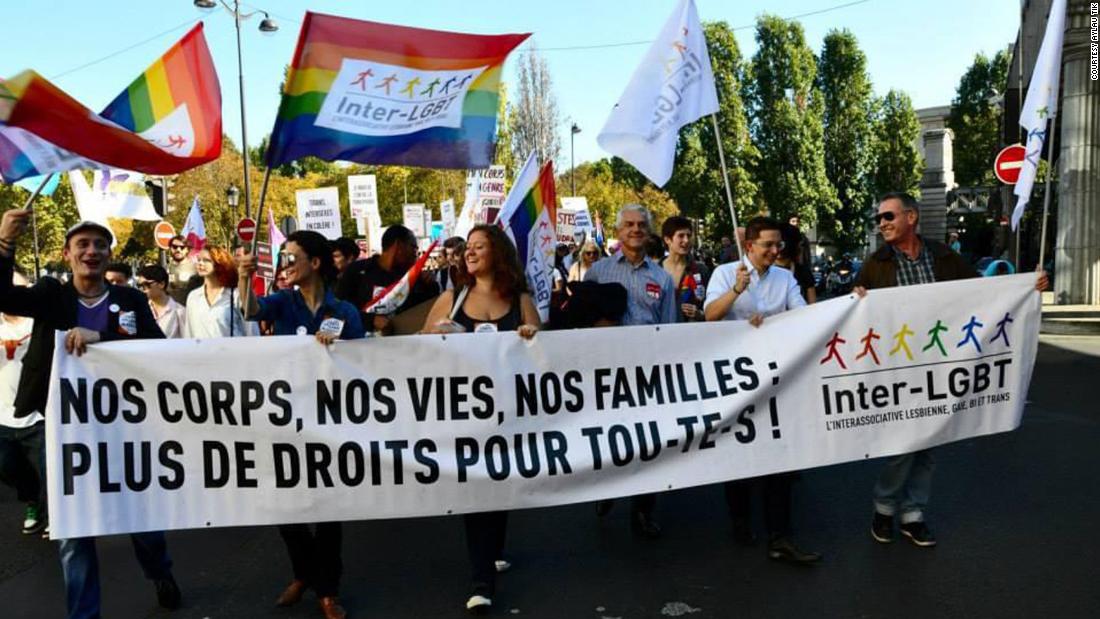[ad_1]
Foursy was a longtime LGBT activist. Ligot worked in IT. They were both in their 30s and wanted children. They soon moved in together, vacated a second room in their apartment and bought a crib. “It made sense for us to start a family together,†Foursy said.
Thanks to a decree signed Wednesday by the French Minister of Health, their dream could finally come true. A law passed in June, legalizing fertility treatments for lesbian couples and single women, has now entered into force.
“It’s a big step for France,†said Foursy. “We have been fighting for this right for so long.”
France is now one of a total of 13 countries in Europe – 11 EU member states plus the UK and Iceland – offering fertility treatment to lesbian and single women. Fertility clinics expect demand to increase.
“We expect 200 more patients a year,” said Laurence Pavie, who works as a manager at the Diaconesses Croix Saint-Simon fertility center in Paris.
“The world should know that lesbian couples and single women are welcome. We will try to give them the best possible treatment,” she said.
Earlier this month, the Department of Health announced an additional $ 9.3 million in personnel and equipment spending for fertility clinics, to help them cope with the expected increase in demand. . It aims to reduce the wait time for treatment from one year, the current average, to six months.
A sperm donation crisis
For Dr Meryl Toledano, who runs her own fertility clinic, this goal seems ambitious. “With French sperm alone, we will have a hard time meeting the demand,” she said.
France does not allow the importation of semen from overseas. And because the law prohibits donating sperm for cash, France is also struggling to produce enough sperm. The new legislation also includes the end of guaranteed anonymity for sperm donors from September 2022, a move that could add to the shortage.
The most recent official figures show that a total of only 317 sperm donations were made in France in 2019, compared to 386 in 2018 and 404 the year before.
The Biomedicine Agency, a state-funded body, plans to launch an online information campaign on October 20 to fight the sperm crisis.
“Sperm donation is an intimate act of solidarity,” said Hélène Duguet, spokesperson for the agency. “The first step is to let people know that these donations are possible and can help people form families. The idea is to encourage donors for years to come.”
Long wait times driven by the sperm shortage mean that many older lesbian and single women plan to continue undergoing fertility treatment abroad – despite the new law.
Toledano often recommends that older women take this step.
“In Spain, you can have sperm in a day, so patients who have money go. Those who have no money have to wait 6 to 12 months and risk failing because at 40, this has a huge effect on the likelihood of pregnancy, â€she said.
A traumatic journey
Now 38, Marie conceived a child through IVF in Belgium in 2015 – at a time when it was still illegal for her, as a lesbian, to receive such treatment in France.
“It was boring. I pay taxes in France and I am proud to pay taxes and I am happy that they could have helped others. But I would have been happy if I could have benefited too. [from fertility treatment]”said Marie, who asked CNN not to use her last name to protect her child’s privacy.
After five years of unsuccessful attempts, heartache, and over $ 52,000 in medical and travel expenses, she was finally rewarded with the birth of her first child, Louise.
“My first course of fertility treatment was a real trauma,†she said. “I was frustrated that it didn’t work. I hated that others had so many unwanted or unplanned pregnancies. I became bitter. I hated people. I became someone I didn’t want to be. “
Hoping to have a second child, Marie has now moved to Spain with her new partner, in part because she is afraid of languishing on a waiting list in France.
“I won’t put in the same time, energy or money. I already have a daughter and I don’t want her not to go on vacation because we are trying to give her a little brother or a little sister. – and also because I’m not the same age as I was back then, “she said.
Along with the new rules on insemination, the legislation also allows women in their 30s to freeze their eggs, a procedure previously reserved for people undergoing medical treatment that could impact fertility. Surrogacy, however, remains illegal, leaving gay men, as well as women who cannot carry a pregnancy, seek other options, or travel abroad.
But for many, the new law has brought a silver lining.
“The fight is over,†Foursy said. “Everyone has the same rights. Every type of woman has the same rights and I can choose to be a mother or not on my own.”
[ad_2]

